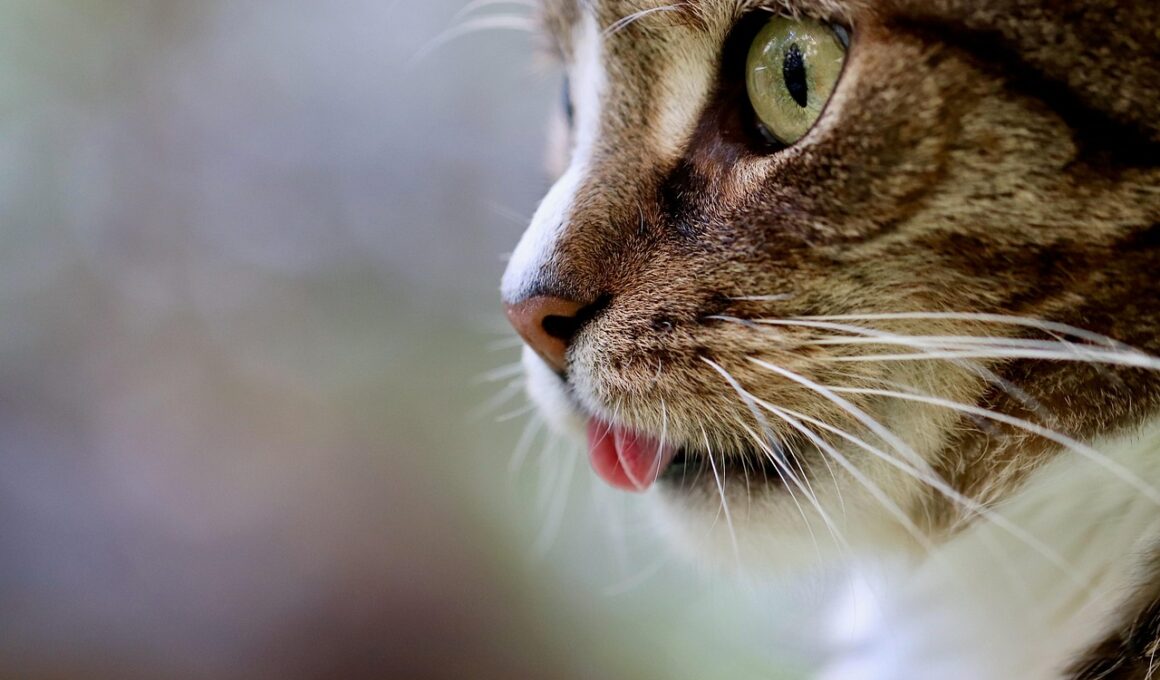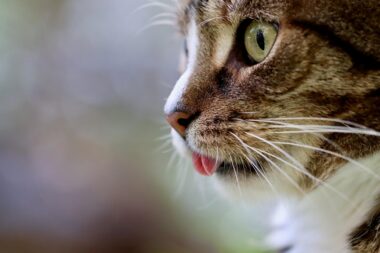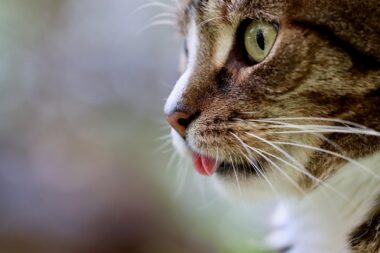How to Choose the Right Vitamin Supplements for Your Cat
Providing the right vitamins for your cat is essential to ensure their optimal health and well-being. Cats are obligate carnivores, which means they primarily rely on a meat-based diet. However, in some cases, their nutritional needs may not be met entirely through food alone. Supplements can potentially help address these deficiencies. It’s important to recognize that vitamins play different roles in a cat’s body. They assist in vital processes including immune function, skin health, and overall metabolism. Seeking advice from a qualified veterinarian can help identify which supplements may be suitable for your pet. Cats, like humans, can suffer from vitamin deficiencies. A balanced diet should naturally provide necessary vitamins, yet, many factors come into play like age and overall health. Some vitamins are fat-soluble, meaning they can be stored in the body’s fat, whereas others are water-soluble and must be consumed regularly. Before choosing any supplements, consider your cat’s specific needs. Monitor for signs of nutritional deficiencies such as dull fur, lack of energy, or unexpected weight loss. Always prioritize professional advice to tailor supplementation effectively.
When selecting vitamin supplements for your cat, it is critical to understand the specific vitamins most beneficial to felines. The best vitamins to consider include Vitamin A, which supports vision and immune health, and Vitamin D, crucial for calcium metabolism. Additionally, Vitamin E plays an important role in skin health and is an antioxidant. When considering supplements, it’s important to explore various forms available in the market. For instance, liquid, chewable, and powdered forms are common. One option might be more suitable depending on your cat’s preferences. Some cats may resist swallowing pills, so formulations that appeal to their taste will encourage regular intake. Pay close attention to dosage recommendations, as excess supplementation can also cause health issues. Ingredients matter; aim for high-quality products made with natural components. Examining the label can help in evaluating the effectiveness of the supplement you choose. Furthermore, do not hesitate to discuss any concerns or questions with your veterinarian. They may suggest brands known for their efficacy and reliability. Ensuring your cat receives proper nutrients can enhance their quality of life significantly.
Understanding Cat Vitamins and Their Functions
Knowing the essential vitamins and their functions allows cat owners to make informed choices. Each vitamin contributes uniquely to your cat’s health. Vitamin A strengthens vision and immune systems while promoting healthy skin. Additionally, B vitamins are fundamental for energy production. Vitamin C, while not strictly necessary for cats, supports overall wellness and acts as an antioxidant. Moreover, Vitamin D is paramount in maintaining healthy bones and teeth. The vitamins mentioned must be balanced within your cat’s diet and must work synergistically to promote maximum health. When considering how your cat absorbs vitamins, be mindful of their age and health status. Kittens have different nutritional requirements compared to senior cats. Overweight cats might also face absorption challenges. Be observant of changes in appetite or behavior, as these may signal nutritional deficiencies. Furthermore, certain medical conditions or medications may affect how vitamins are absorbed and processed within their bodies. Regular check-ups can help identify any potential deficiencies early on. Utilize veterinary guidance to create a supplementary plan that fits your feline’s needs perfectly. Knowing these elements will enable a tailored approach.
When administering vitamin supplements, consider the timing and frequency of doses. For optimal absorption, some vitamins are better absorbed when taken with meals. For example, fat-soluble vitamins like A, D, E, and K benefit from being consumed alongside fats found in food. On the other hand, water-soluble vitamins, which include C and the B-complex vitamins, can be given regardless of meal times. Consult your veterinarian regarding the proper administration methods to avoid overwhelming your cat. Gradual introduction of supplements can help familiarize your cat with new products without causing distress. Monitoring your cat’s reaction to new vitamins is also crucial. Look out for any signs of gastrointestinal upset or unusual behavior. Adjustments may be necessary in these cases. Keeping a diary of your cat’s health, including observations before and after starting a vitamin regimen, can support you in tracking improvements or side effects. Furthermore, ensuring the supplements don’t interfere with any existing medications is paramount. Discussing these factors with your veterinarian will ensure a safe and effective supplementation plan customized for your furry friend’s health requirements.
Choosing Quality Vitamin Supplements
Not all vitamin supplements are created equal, and selecting a reputable brand is vital to ensuring your cat’s safety and health. Research companies that provide transparency regarding their ingredients. High-quality supplements will list each ingredient clearly, and be formulated specifically for cats. Avoid products that contain fillers or artificial additives, as these may not contribute to your cat’s overall health. Aim for products undergoing testing for both quality and efficacy. Look for endorsements from veterinary professionals or organizations that ensure high standards of production. Additionally, consulting reviews from other pet owners can also guide you in your decision process. Beware of supplements making exaggerated claims; avoid those promising miraculous results. A well-balanced diet tailored with appropriate supplementation offers a more reliable approach. Investing in reliable sources can prevent potential adverse reactions and ensure your cat benefits from the intended health boost. It’s always recommended to choose supplements that are approved by relevant pet health authorities. Prioritizing quality in your products will minimize risks and enhance the overall well-being of your beloved cat.
Another critical aspect of administering vitamins is understanding your cat’s dietary habits. Some cats can be picky eaters, often refusing food that doesn’t appeal to them. To encourage your cat to consume vitamin supplements, consider mixing them directly with their food or using enticing options like treat-based formulas. This can make the process smoother, ensuring your cat receives necessary vitamins without much fuss. Alternatively, offering the supplements as a standalone treat could pique their interest. This also means tailoring your approach based on your cat’s personality and dietary preferences. Experimenting with different forms of supplements, such as powdered or liquid versions, may also yield positive results. Keep in mind that patience is essential; some cats may require several attempts before they’ll accept new products. Trial and error is a part of the journey to find the right mix without causing stress for your cat. Be sure to celebrate small successes when they enjoy their vitamins, as positive reinforcement is effective. Engaging in consistent, rewarding experiences will help solidify their acceptance and allows for a more straightforward approach to maintaining their health.
Conclusion: Prioritizing Cat Health with Vitamins
In conclusion, focusing on vitamins is a vital part of your cat’s health management strategy. However, the right approach requires knowledge and careful consideration. Regular veterinary check-ups can aid in evaluating dietary needs. You’ll want to establish a balance between food and supplementation. Variables such as age, health conditions, and dietary preferences play crucial roles in determining specific requirements. Safe and effective supplementation can enhance your cat’s quality of life and prevent potential health issues. Continuously monitoring your cat’s health after starting any vitamin regimen ensures that any changes are documented and evaluated. Engage your veterinarian to customize your cat’s nutrition plan for long-term benefits. Remember to pay attention to product quality and seek out reputable brands. Balancing essential nutrients helps your feline friend flourish. Ultimately, the goal is to maintain your vibrant cat’s overall well-being through proper nutrition, which encompasses vitamins as integral components. Building a solid health foundation through nutritional guidance is the path to a long, happy life for your pet.
With proper knowledge and approach to vitamins, your cat can lead a healthier life filled with energy and vitality. Ensuring your cat receives optimal nutrition will lead to a fulfilling companionship.





